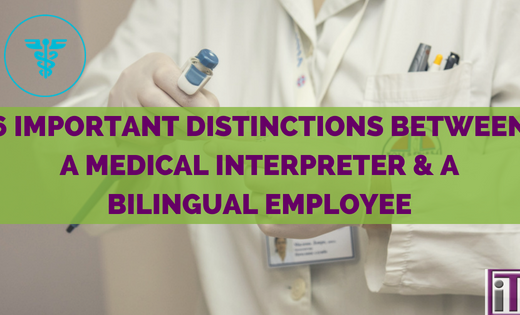Language barriers can be a significant challenge in healthcare. Ensuring full language access isn’t just a compliance issue—it’s a fundamental matter of equity, diversity, and inclusivity. Here’s how creating a comprehensive language access plan can transform healthcare experiences for providers and their patients. Benefits…
The Law Regarding Medical Interpreting is Changing. Section 1557 of the Affordable Care Act (ACA) is being amended. It will require medical providers to document they are working with a “qualified interpreter.” Healthcare providers who receive government funding must only use Qualified or Certified…
Should My Bilingual Employees Act as Medical Interpreters?
That’s a great question. And the answer is…complicated. When it comes to interpreting, your bilingual employees can be among your greatest assets. They can also be some of your biggest liabilities. Interpreting is a skill. Interpreting is a distinct skill and is different from…
6 Crucial Differences – Medical Interpreters vs. Bilingual Employees
With nearly 70 million people in the United States speaking a primary language other than English, odds are you are encountering more and more LEP (Limited English Proficient) patients every day. Because a patient’s well-being is on the line, healthcare providers must assist them…
5 Continuing Education Resources to Advance Your Interpreter Career
Are you looking for an interpreter training program to help take your career to the next level? Choosing a specialty can help to accelerate your interpreter career. The more skilled you become in one facet of interpreting, the more demand you will generate. Sample…
Do You Trust Your Translator? (A Cautionary Tale)
Once upon a time, about ten months ago, I moved to a new country in South America. I needed to find an international job but didn’t have a work visa yet. So I put my feelers out and began networking with expats, reading online…






